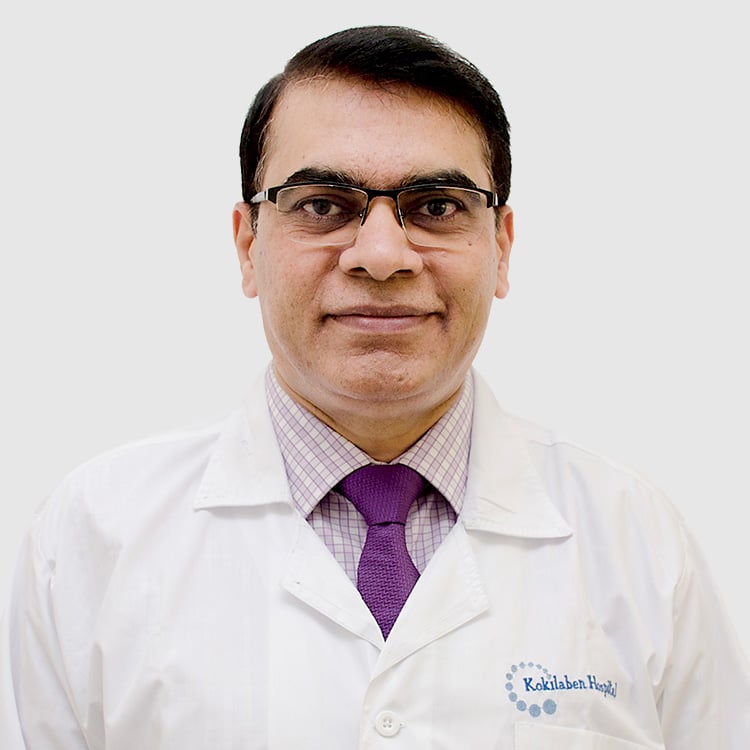Prostate Cancer is a disease which only affects men. Cancer begins to grow in the prostate, a gland in the male reproductive system.
Prostate cancer is now the most commonly diagnosed male cancer in many Western countries and records show that its incidence is increasing in India. The number of recorded cases has increased a lot in recent years. This is partly due to the increased use of the Prostate-Specific Antigen (PSA) test, which has resulted in more cases being detected, and partly due to the fact that men are living longer. Like most cancers, prostate cancer is more common in those over 60. In 2013, more than 242,000 men will be diagnosed with prostate cancer, and more than 28,000 men will die from the disease. One new case occurs every 2.1 minutes and a man dies from prostate cancer every 18.6 minutes.
Particularly in Asia we face a future major increase in the rates of prostate cancer. Collaborative action now is a high priority to allow the preparations necessary for effective control of prostate cancer.
5% to10% of cases runs in families, where the patient inherits a high risk of this type of cancer. Men with a single first-degree relative–father, brother or son–with a history of prostate cancer are twice as likely to develop the disease, while those with two or more relatives are nearly four times as likely to be diagnosed. The risk is highest in men whose family members were diagnosed before age 65.
As men increase in age, their risk of developing prostate cancer increases exponentially. Race also has an effect: Men of Afro-Caribbean descent are about twice as likely to get it whereas men of Asian descent have a lower risk of prostate cancer. There is no known way of preventing prostate cancer, and research has not found any reliable evidence that any particular diet or change in lifestyle can reduce the risk of getting it.
Early stage prostate cancer does not cause any symptoms. So men who are above 50 years of age are advised to undergo voluntarily testing for prostate cancer.
However, all of these symptoms can also be caused by other conditions, such as benign prostate enlargement. Men with any of these symptoms should consult their doctor.
If prostate cancer is diagnosed early, it can be treated very successfully. However, when the cancer is advanced, it becomes very difficult to cure. All men over 50 should be aware of the warning signs and consult their doctors at regular intervals. At the moment, routine screening for prostate cancer is not carried out in any country, because there is no firm evidence that it would save lives. But early detection in a well educated and informed patient can detect early cancer.
Prostate cancer cells can spread anywhere in the body. In practice, though, most cases of prostate cancer metastasis occur in the lymph nodes and the bones. Prostate cancer metastasis occurs when cells break away from the tumour in the prostate.
Sometimes prostate cancer is so slow growing that no treatment is needed. ‘Watchful waiting’ is used in these cases, with regular monitoring of the patient, by regular PSA tests, to find out if the cancer changes. Commonly practiced options include surgery and radiation therapy for early cancers and hormonal treatment for advanced cancers.
Surgery called prostatectomy, where the whole prostate gland is removed, may be advices in some cases. The options for patients with early diagnosed organ-confined prostate cancer areThis procedure is also called da Vinci Robotic pProstatectomy. It is a minimally invasive surgical removal of the prostate involving the latest advancements in robotics and computer technology.
In radiation treatment, high energy rays kill the cancer cells. This can be used in early prostate cancer, to destroy the tumour, and in advanced tumours, to reduce the pain caused by tumour cells which have spread to the bones.
Since the growth and division of the prostate cancer cells depends on androgens (the male hormones), drugs can be used to either reduce the level of androgens produced by the body or block the effect of androgens on the cancer cells. These stop the growth of the tumour, but do not kill it, so they have to be taken for a long time. However, after a while (anything between 3 and 20 years), most prostate cancers develop the ability to grow without androgens, and the hormone therapy stops working.
The outlook for people with bladder cancer varies dramatically depending on the stage of the cancer at the time of diagnosis.
Treatment options depend on the stage of bladder cancer. Three types of standard treatment are used, as follows:
| Survival Rate | 85-90 per cent |
| Morbidity | 6-12 per cent |
At Uro-Oncology service of Kokilaben Hospital, we have managed more than 500 prostate cancer patients in four years and have state-of-the-art da Vinci Robotic Surgery and Radiation Techniques to treat such patients. Our outcomes are in accordance with international guidelines of prostate cancer management. We have multidisciplinary team approach and tumour board which consists of uro-oncologist, medical oncologist, radiation oncologist and onco pathologist and radiologist where decision making is done according to the global standards. We, in India, are the first one to perform the fasted 100 robotic surgeries after installing Da Vinci robot with excellent outcomes.

Cancer/Surgical Oncology, Robotic Surgery, Minimal Access Surgery, Urology
Complex Uro-oncology surgeries, Minimal access surgeries, Robotic surgeries, Open Surgery including complex procedures involving large blood vessels and Retroperitoneal masses.